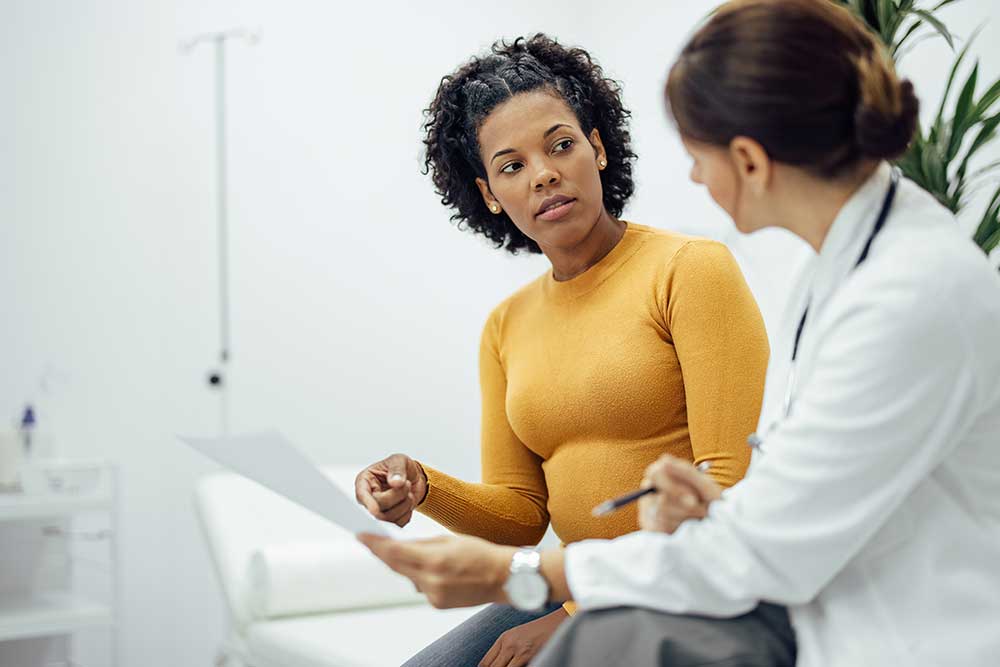You know some of the most common risk factors for breast cancer: being female, being 45 or older, having a history of breast or ovarian cancer or being closely related to someone who does. But did you know the lotion you use, your water bottle and the containers you put your leftovers in could put you at risk for cancer? Did you know not knowing your own body could cause you to miss a warning sign for cancer?
Hidden Risk #1
Chemicals that can cause cancer are called carcinogens. Read labels on your food and hygiene products. Avoid common carcinogens like:
- Bisphenol A (BPA) found in many hard plastic items like water bottles and plastic containers
- Parabens and phthalates in cosmetics like lotion, shampoo or makeup
- Secondhand smoke and car exhaust fumes
All of these chemicals can increase your chances of developing certain cancers. Additionally, BPA can harm your reproductive, immune and neurological systems and increase your risk of Alzheimer’s, type 2 diabetes, cardiovascular disease and metabolic disease. Parabens have been linked with harmful disruptions to hormones in the body and can affect your fertility, reproductive organs and birth outcomes. Phthalates have been shown to cause harm to reproductive, neurological and developmental systems in humans.
Hidden Risk #2
If you’re not familiar with your body, you’re at risk. In the shower, getting dressed, wherever, make a habit to check your breasts and the rest of your body regularly.
If You Find Any of These in Your Body, You Need To See Your Doctor This Week:
POTENTIAL SIGNS AND SYMPTOMS | |
A lump in your breast or armpit that doesn’t go away | Pain, tingling or tenderness in and around your breasts |
Swelling in your armpit, near your collarbone | Flat or caved-in breast tissue |
Your breast size, shape, contour, temperature or texture changes | Your nipple suddenly pulls inward, itches, burns, develops sores or is dimpled |
Your nipple leaks bloody, clear or other colored fluid | What feels like a marble under the skin of your breast |
